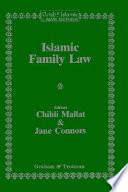
An Introduction to Islamic Law
The study of Islamic law can be a forbidding prospect for those entering the field for the first time. Wael Hallaq, a leading scholar and practitioner of Islamic law, guides students through the intricacies of the subject in this absorbing introduction. The first half of the book is devoted to a discussion of Islamic law in its pre-modern natural habitat. The second part explains how the law was transformed and ultimately dismantled during the colonial period. In the final chapters, the author charts recent developments and the struggles of the Islamists to negotiate changes which have seen the law emerge as a primarily textual entity focused on fixed punishments and ritual requirements. The book, which includes a chronology, a glossary of key terms, and lists of further reading, will be the first stop for those who wish to understand the fundamentals of Islamic law, its practices and history.
- ISBN 13 : 1139489305
- ISBN 10 : 9781139489300
- Judul : An Introduction to Islamic Law
- Pengarang : Wael B. Hallaq,
- Kategori : Law
- Penerbit : Cambridge University Press
- Bahasa : en
- Tahun : 2009
- Google Book : https://play.google.com/store/books/details?id=3YvEt3PxmAcC&source=gbs_api
-
Ketersediaan :
The book, which includes a chronology, a glossary of key terms, and lists of further reading, will be the first stop for those who wish to understand the fundamentals of Islamic law, its practices and history.









